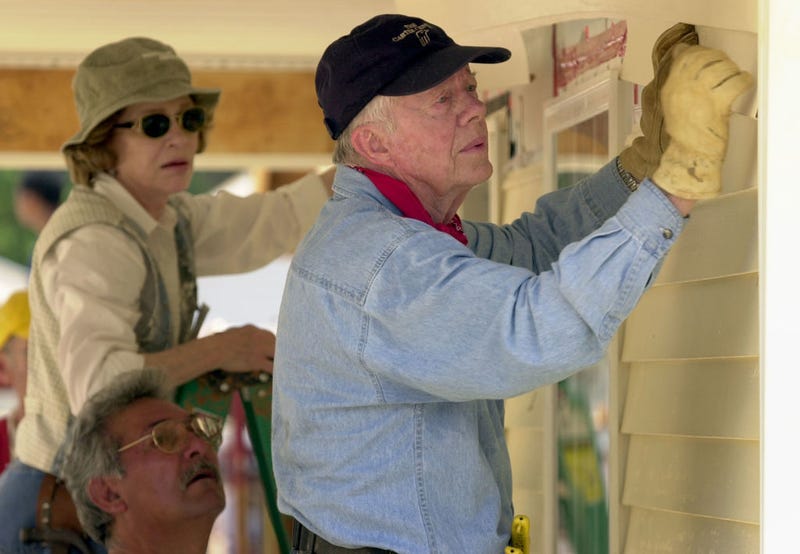
Pittsburghers are remembering the 39th President of the United States, Jimmy Carter, a day after he died at the age of 100.
One them is Habitat for Humanity's local CEO, Howard Slaughter who told KDKA Radio's Michael Bartley the former president was a difference maker for the organization.
“As a former president who linked with Habitat, helped us to increase our funding, helped us with volunteers,” said Dr. Slaughter. “We have, in Pittsburgh alone, we have well over 1,000 volunteers on an annual basis.”
Dr. Slaughter said more than 100 homes in the area are the direct result of Jimmy Carter's involvement with Habitat.
Habitat for Humanity was founded by Millard and Linda Fuller, but gained national attention with Carter’s involvement.
Duquesne Professor Joseph Mistick told KDKA Michael Bartley Carter changed the course of the city's history when he appointed then Mayor Pete Flaherty to be deputy attorney general.
“(Richard) Caliguiri was President of (City) Council and when Pete took that job in D.C., Dick became Mayor of the City of Pittsburgh and then he ran for two terms and was reelected,” said Mistick. “And then, when he died, Sophie Masloff became mayor, because she was President of Council at the time.”
Current Mayor of Pittsburgh, Ed Gainey, praised Carter’s humanitarian work.
“If you can help the least of us that need the help, then you improve the world,” said Gainey. “You go all the way back to Biblical times, that’s always been the strategy. If we can uplift the least of us, then we can uplift all of us.”
After Carter left the White House, he spent the next 40 years setting new standards for what a former president can do.
Carter's best-known achievements are winning a Nobel Peace Prize and decades of helping to build homes around the nation with Habitat for Humanity.
When it comes to sports, it was President Carter that handed the Pittsburgh Pirates their last World Series trophy in 1979 and he hosted both the Pirates and Pittsburgh Steelers at the White House in 1980.
Carter was the first President of the United States to host the Super Bowl Champion at the White House, a tradition that continues to this day.

